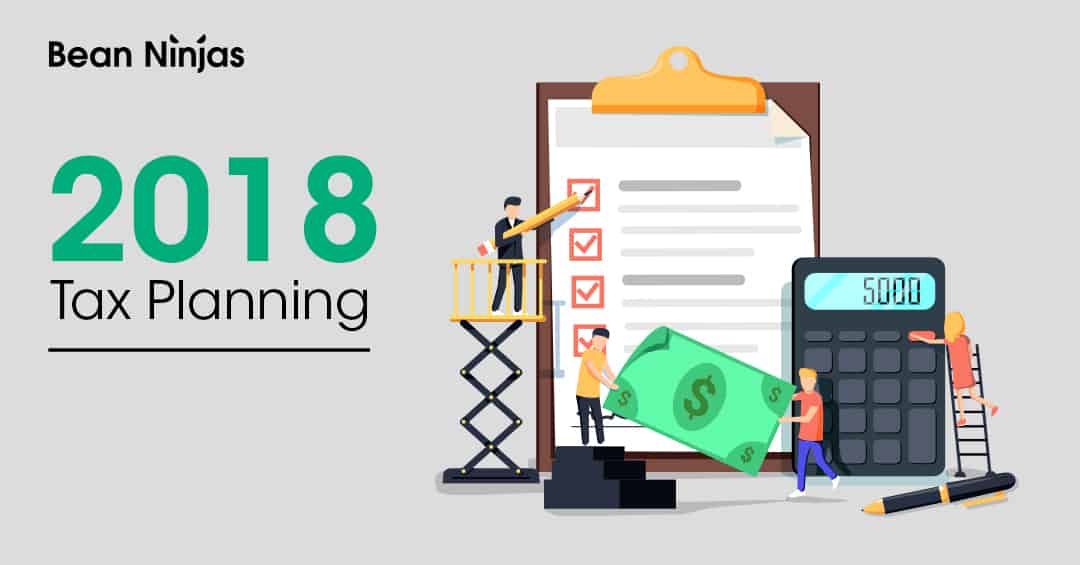With the end of the financial year rapidly approaching, it is time for Australian tax payers to put their minds to the annual tax planning process.
Article Contents
What is tax planning?
Tax planning is a process of estimating the tax position before the end of the financial year to allow for the identification of opportunities to reduce taxes as far as legally or commercially possible.
It is also a great opportunity to address other compliance requirements where timing is key and missing deadlines can have negative impacts.
Tax planning is not restricted to large corporations with sophisticated arrangements and it’s encouraged that all tax payers take it into consideration as tax is a real cost that effects your net wealth. Lack of tax planning often results in paying more taxes than legally required, and who wants to do that?
Working closely with your accountant on tax planning will help you navigate the ever-changing tax landscape and ensure the best outcome for your business and personal affairs whilst staying out of reach of the ATO general anti-avoidance provisions.
What to consider?
Below are three key areas that require attention during the tax planning process:
.
Business Income
Reviewing your business records will assist your accountant highlight any opportunities or areas of concern. Examples of what may be identified during the tax planning process include:
- You may be missing out on valuable deductions such as superannuation contributions if not paid on time
- You may be holding onto obsolete or devalued stock or assets that can be expensed
- You may have the opportunity to bring forward or prepay expenses in the current year
- You may have the opportunity to defer income to the next financial year or may have received income in advance
- You may have bad debts that can be expensed
- You may have the opportunity to make use of the small business concessions such as the $20,000 immediate asset write-off that currently expires 30 June 2019
- You may have the opportunity to apply the small business capital gains provisions
- You may have carry forward tax or capital losses that can be applied
Without accurate and up to date information, it will be difficult to derive a clear picture of your business performance and tax position. With the abundance of easy to use, cloud based bookkeeping packages available, there’s no excuse to be behind with your record keeping.
If your time is better spent on other tasks, outsourcing the bookkeeping is a great and affordable way to stay on top plus you’ll have a valuable ally for your business as a bonus!
Related reading: How to Find the Right Outsourcing Partner for Your Business
Related reading: How to Choose the Right Accounting Software for your Business
.
Other income
Your non-business income must also be considered during the tax planning process. Sources may include:
- Salary, wages, allowances, fees and ETPs
- Government payments and allowances
- Superannuation income streams
- Interest, dividends and other investment income
- Rental property income
- Capital gains or losses including crypto currency gains and losses
- Foreign income
Your accountant will ensure that all deductions and opportunities relating to the above income sources are taken into consideration when reviewing your overall position.
Note the ATO’s data matching capabilities are increasing, so please ensure all sources of income are declared and that appropriate records are kept.
.
Group Structure
If you have a company or discretionary trust in your group structure, there are unique opportunities to minimise your taxes. There are also unique compliance requirements that need consideration prior to 30 June each year.
.
Companies
Operating through a company provides opportunities but without tax planning, it can create obstacles due to the strict compliance requirements.
With a company being a separate legal entity to you as the owners or directors, it must be remembered that the company’s assets are not your assets. The three main ways to legally extract money from a private company as a director or shareholder are as follows:
- Directors Salary, wages, allowances, fees
- Subject to superannuation guarantee, PAYG withholding and ATO reporting
- Dividends
- The declaration and payment of dividends must be recorded appropriately
- Loans
- May be deemed to be unfranked dividends unless subject to commercial terms
During the tax planning process, your accountant can assist in optimising the level of director’s fees and dividends within commercial and legal boundaries to keep tax at a minimum. Your accountant can also help meet your obligations on time to avoid any negative impacts of non-compliance.
.
Discretionary Trusts
Discretionary trusts are an excellent vehicle for tax planning due to the flexibility afforded in respect of the who, what and how much to distribute each year.
If the trust deed allows, the trustee can:
- Distribute income in in any proportion to the nominated beneficiaries e.g. 25% to taxpayer X, 35% to taxpayer Y and 40% to taxpayer Z
- Can stream income by segregating the different income classes and distribute in the most tax efficient manner e.g. Distribute capital gains to a taxpayer with carry forward capital losses
During the tax planning process, your accountant will assist with optimising the distributions to minimise taxes. Your accountant can also assist with ensuring the annual trust distribution resolution is prepared by 30 June each year. Not having a complying resolution prepared on time will subject the trust income to the highest marginal rate and the ATO has openly stated that they are focusing on compliance in this area.
Related reading: How to choose the right business structure for success
.
What are you waiting for?
.
If you haven’t been contacted by your accountant, please reach out to get the process started. There are opportunities to exploit, money to save and timing is often critical!
Good luck with your end of year preparations.







